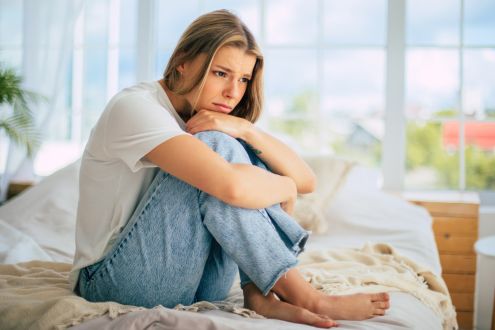Dr Martha Deiros Collado — ‘We prioritise our phones over everything else’
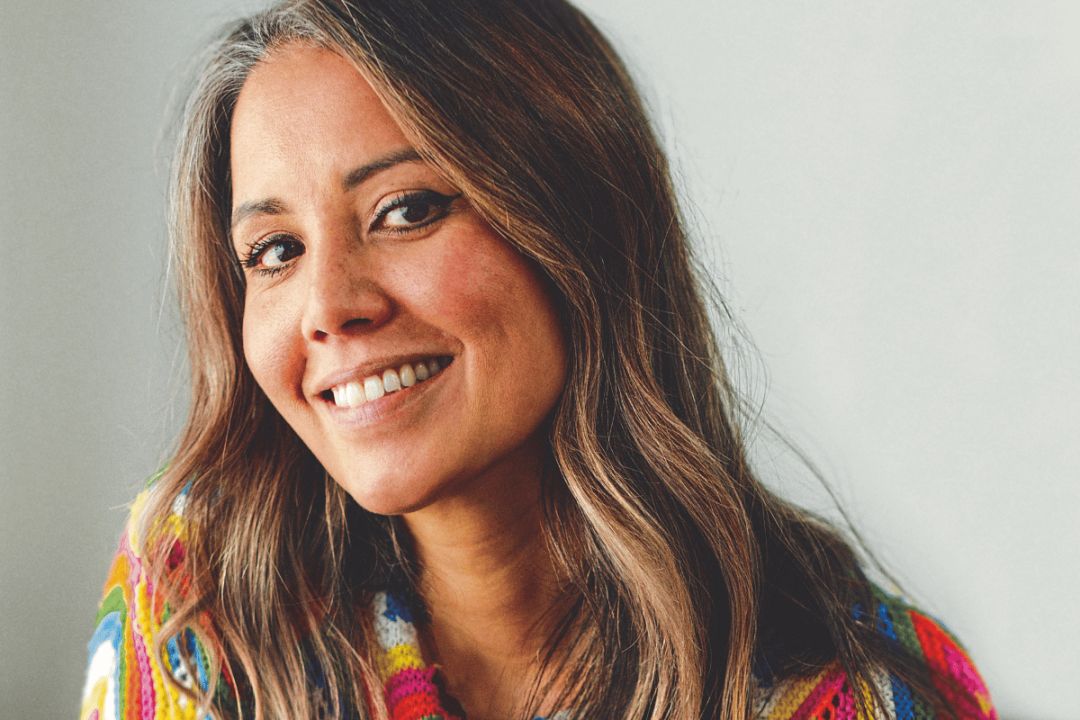
Are you getting sick of losing hours of your life to your phone every day, even when you’re trying hard not to? Psychologist and expert Dr Martha Deiros Collado is here to help us take back control from phone addiction…
Words: Sally Saunders. Images: Jesse Jenkins
After chatting with Dr Martha Deiros Collado, it’s hard to see the shiny glass rectangle ‘that takes up so little space in our pocket but so much space in our minds’ as anything but a dangerous interloper designed to distract and disrupt.
Because the good doctor is on a mission to untangle us from our phones and help us to learn how to live without being constantly attached at the hip (or hand).
A psychologist who specialises in working with children, she has been focusing on helping families unplug, thanks to her new book The Smartphone Solution (Thorsons, £16.99), and it’s a project that can’t come too soon, as a new study has just been released to show that giving smartphones to children too soon can damage their mental health for the rest of their life.
But Dr Martha’s not just focused on the kids — she wants us all to be able to enjoy the freedom of not feeling the need to be constantly connected and ‘always on’.
‘I think adults and older adults grandparents are the worst at using smartphones, and I include myself in this 100%, but we are the worst because no one ever taught us how to use them,’ she says. ‘Kids are digital natives. They’re born around technology and smartphones and the internet. But we weren’t, and nobody said to us, “Oh, by the way, this is a healthy way of using it.”’
Now, after a decade of watching it encroach more and more on modern life, she’s trying to help us take action. ‘I say it’s a wake up call, because I feel like we’re being called to listen,’ she says. ‘And I am not somebody who’s into fear mongering. I don’t think fear is a very good position to be in when you’re trying to make healthy decisions. But I think awareness is really important.’
The first thing she wants us to be aware of is how our phones impact our relationships. ‘I see phones as a third person in the room. They are disruptors of our connection, our relationships, our conversations, our sleep. They distract us and they disrupt us.’ (If your phone is stopping you from sleeping, here’s how you can fix it!)
‘We need to be really aware. Do I want this third person here right now? Think, you go to a restaurant and somebody joins you, and then they put their phone on the table. I’m always like, “Is something more important going to happen on there? If that buzzes, is that more interesting than me?”’ I call it “technoference”, the way technology interferes in our lives all the time.’
She believes it’s more fundamental than simply poor table manners and interrupted conversations. ‘I think it’s odd that we’ve normalised that we all carry them. We hold them in our hands. I’ve seen people walking around, walking with their smartphone down the high street, and I think, one, that’s unsafe, you’re going to get mugged. But two, it’s not a pet, or a child and you have to hold their hand the whole time — put it away!’
But she’s keen to explain she doesn’t blame us for our behaviour. ‘It’s not our fault, I feel this deeply, and it’s not our fault because phones were created in a way that trains us to keep them close, to keep checking, “What’s happening in here?”’
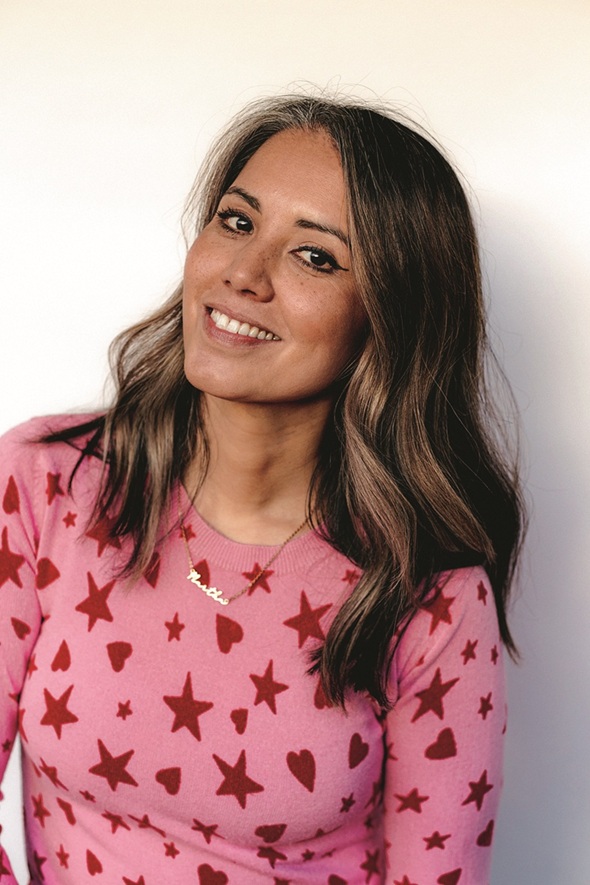
What’s most important?
‘I think of it as a door,’ she goes on. ‘Every time it buzzes, it’s like a doorbell ringing in your house. And you can choose to either open the door or you can be like, leave me a message, you know, leave me a little reminder note. Sometimes, you know it’s an important delivery. So you’ll go and open the door because you know your package is coming.
‘But sometimes you can be like, “I don’t know who that is, and if it’s important, they’ll leave me a note or they’ll come back.” That’s what we should be doing with our phones.
‘But we don’t. We seem to prioritise them over everything else that’s happening to us. And I think that’s a problem.’ Her own reliance on her phone was made clear to her by her young daughter. When she began writing the book, Dr Martha would purposefully leave the phone around the house, so as not to feel tied to it — and her little girl’s reaction was an eye-opener. ‘She would find it, and she’d come running to bring it to me, “Your phone, your phone”, like it was super important.
‘And it broke my heart. I would say to her, “My phone’s not important. It’s okay. You can just leave it. Mummy doesn’t need her phone right now,” but the fact she felt like this is really important, it showed me, okay, we have a problem, all of us, but me included.’
Her daughter’s behaviour was also enlightening in relation to technoference. ‘I think being distracted by our phones is one thing with other adults, but also huge when it comes to our kids.
‘My six-year old is really into cartwheels at the moment, and always wants me to watch her. And sometimes I’ll be like “Just a minute, just give me a minute.”
‘You know, we might be doing something important. You might be using your phone to distract, to work, to socialise, entertain yourself. I think all those things are okay. There are times for all those things to be okay, but you need to find the balance where you’re also showing presence to your kid, and teaching them: “My phone is not more important than you,” because I think we risk actually teaching our kids that phones are more important, that’s what we’re modelling.
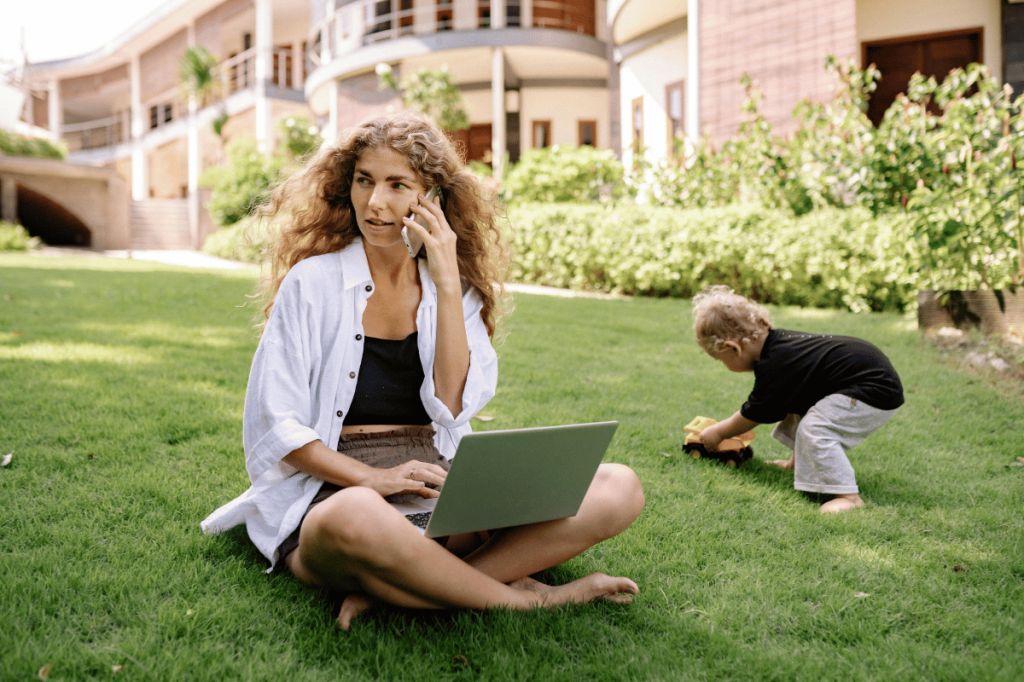
‘You know, my daughter was trying to wear my mum’s heels. She sticks her feet in mum’s shoes, and walks around. We’re all giggling. It’s gorgeous. And I thought, that’s such an analogy for smartphones. We’re on them, so of course, they want them. So if we want our kids not to think of smartphones as the most important item that they must own, we need to prove that they’re not the most important item that we own.’
One way she has identified of doing this is to remove the mystery and the magic that the secretive nature of the smartphone can conjure. ‘We use smartphones in silence like we’re reading a novel. So it looks really secretive. Well, actually, if I pick it up and say to my daughter, “Oh, the cleaner asked me to buy some wood polish. Let me add that into my shopping list.”
‘I’ve just brought reality into something that looks special, and I’ve connected with my child in a moment of utter disconnect.’
Another key aspect for her is where we keep our phones. ‘If you feel like you spend too much time on your phone, and when you start scrolling, you lose track of time, and it’s starting to irritate you, frustrate you, because you feel like you’re wasting time, you’re unhappy with your phone usage, then I think step one for me would be separating your phone from your person. You don’t have to carry it on you all the time.
‘You need to find a home for your phone that isn’t on your body. So find somewhere where, when you walk into the house, you turn it into a routine the same way you might take off your shoes, put your bag and your coat like on a hook — put your phone somewhere too, don’t just keep it in your pocket.’
Counterintuitively, she also advises turning up the volume. ‘We shouldn’t have our phones on silent all the time,’ she says — as this can lead to us spending more time physically checking them. ‘When we’re at home, I believe they should be on loud. Switch it on, so you hear it like a doorbell. So when it rings, you know it’s calling you. And you can make the decision.
‘You know you’re doing your baking, or bath-time. You’ve got your hands dirty. It rings, you might be like, “It can wait for a minute.” You know it’s fine. Get yourself sorted, then deal with it when it suits you.’

What suits you?
Her next advice is to have a detox and declutter. ‘Lots of people do phone detoxes, but I prefer a notification detox,’ she says. ‘Switch all your notifications off. ‘I did it for a week. It’s hard, but one of the things you’ll learn is, which apps do I really want to notify me because they’re important, because I’m losing things that I need to know.
‘You also find out which ones you don’t need. So, I don’t need an alert to tell me that something new has popped up, I’ll check it myself. If it’s social media, I’m going to check when I want to, when I’ve got capacity, when I’m interested, not when my phone tells to.’
Ask yourself, “How am I intentional with my phone,” rather than the other way around, where I feel like it’s got me, and I can’t stop.
‘If you’re out with friends, and you’re going to grab your phone, talk about it. Act like it’s a third person that you are introducing into the conversation. Explain, “I need to check my phone because my daughter felt unwell this morning and that could be school calling,” or “I need to reply to this text message for whatever reason,” but name it, because just the act of knowing that you have to say it might put you off unless it really is urgent.
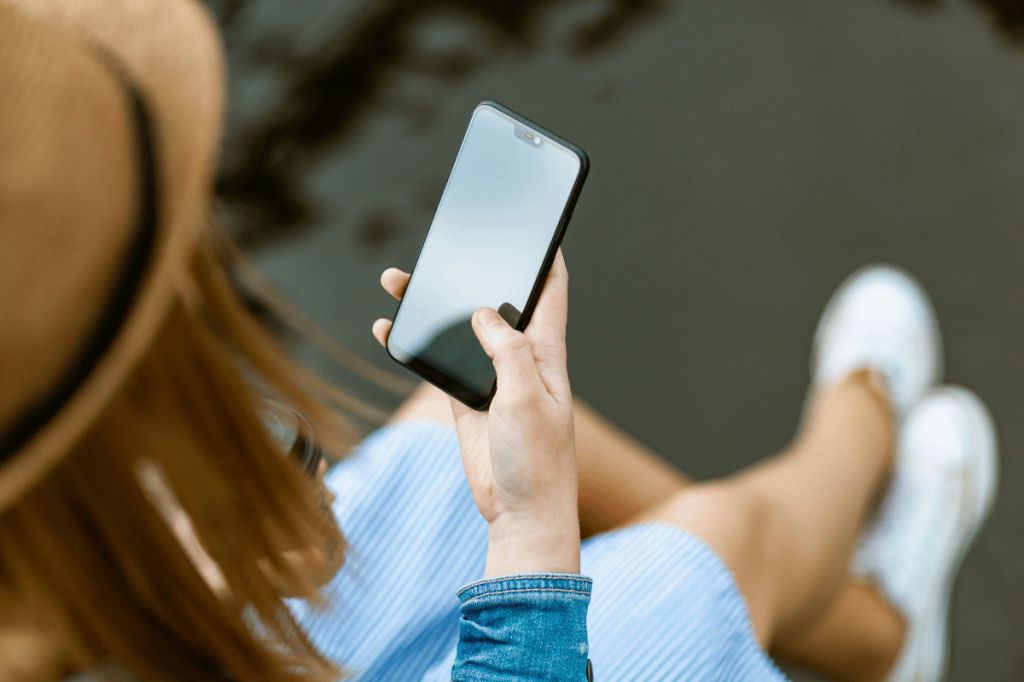
‘I think when we acknowledge the phone as an extra entity in our life, in our world, and especially when we’re in social interaction with others, it means that we take accountability, and we stop, rather than just constantly checking it. ‘It helps you realise “I do not need to look at my phone right now. I can just wait until we we’ve paid and we’ve stepped out the restaurant if I want to check something.”’
She’s been following her own advice for most of the year, and she says she’s seen a huge difference. ‘It makes you feel more in charge, more in control, but I’ve also realised that suddenly I have so much more space.
‘You don’t feel like your phone takes up space, because they’re small little gadgets that fit in your pocket, but they take emotional space and physical space, with all the buzzing and overstimulation that we don’t need.
‘I know it’s a bit different if you use your phone for work — I do too. But once work is over, once you plug it in and leave it, you’re like, you’re free. I literally breathe differently.
‘The first week that we did it, me and my husband, we were both uncomfortable, but it’s because it’s different. And now we’re like, “Oh, that feels lovely.” ‘We talk about mindfulness all the time. Well, we can’t be mindful if we’re constantly plugged into a digital screen. We need to have space, it’s really important for us. We’re not robots, we’re humans, and we need that.’
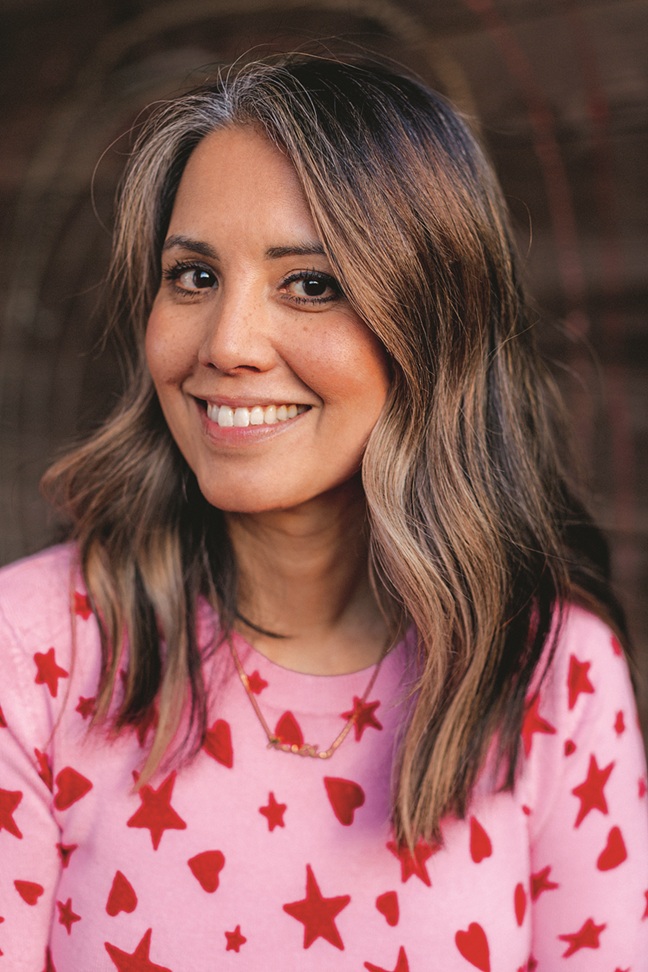
Navigating phone use with partners
Besides our own phone usage, many women report being frustrated by their partner being distracted by their phone. ‘For some couples, it can feel like there’s a third person in the marriage,’ she says. So how do we handle it?
‘If your partner picks up their phone, try not to say “Oh, do you prefer your phone to me?”’ She advises. ‘As soon as you do that, you’re entering a battleground. I believe in finding scripts that are gentler.
‘It might be “Oh, looks like the phone’s just appeared on the table. And actually, I was really looking forward to spending time with you today, I was really hoping we could watch this together and make sure our phones don’t interrupt the show, because this is my time with you, and I’ve been looking forward to this all day.”
‘So talk about how you feel, like, own it, own your feelings, rather than, you know, they always do that, yeah, and then offer a solution. So saying things like, “I’ll take your phone and plug it in. I’ll put it with mine.”’
The Smartphone Solution by Dr Martha Deiros Collado (Thorsons, £16.99) is out now. Follow Dr Martha on Instagram here.


